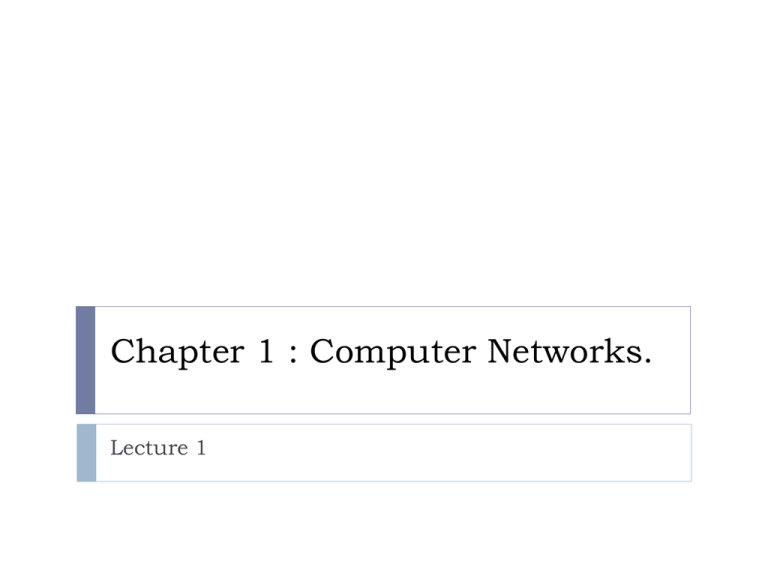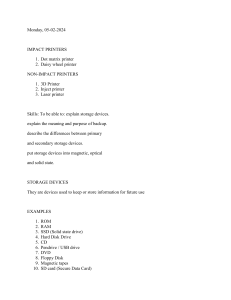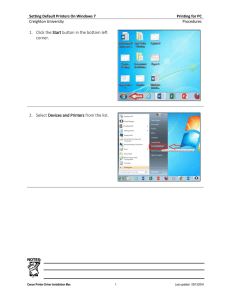Chapter 1 : Computer Networks. Lecture 1
advertisement

Chapter 1 : Computer Networks. Lecture 1 Introduction to computer networks: Network definition : A network is a collection of computers and other devices that connected together in such way to share resources (send data to and receive data) from each other over a network media. Introduction to computer networks: Network definition : A network can be defined also as two or more computers connected together in such a way that they can share resources. Introduction to computer networks: A resource may be: - A file - A folder - A printer - A disk drive - Or just about anything else that exists on a computer. Introduction to computer networks: There are Three things needed to have a Network: 1-Hosts (PCs, laptops, peripheral devices) 2- A pathway to transfer data (Transmission media) i.e. cables, air …etc. 3- Network Interface Card (NIC). Basic concepts: Devices : - A term device is used to represent any entity that is connected to a network. - It includes printers, computers, servers, repeaters, hubs, bridges, switches …. etc. Node: - Other name commonly used in networks for the word Device is Node. Basic concepts: Local Devices : - The device starting the communication across the network is called Local device. Goals of Computer Networks: 1- Resource Sharing: Goal is to make the devices, programs and DATA available to anyone on the network. For Example: File, printer, File exchange, disk sharing. Goals of Computer Networks: 2- High Reliability: Goal is to provide high reliability by having alternate source of supply. For example: All files/ Data can be copied to 2-3 machines on the network so that if one machine fails other can still provide the data. Goals of Computer Networks: 3- Saving Money: Network of devices and computers saves a lot of money. For example: One printer can be shared with ten of computers, so no need to buy separate printers for each computer. Goals of Computer Networks: 4- Communication Media: It is the biggest source of communication media. For example: Information can be shared within the organization even if its offices are far apart. When one worker makes changes to the on-line document, others can see the changes immediately, thus making the functionality of the organization very fast and efficient. Advantages of Computer Networks: - Connectivity and Communication. - Data Sharing. - Hardware Sharing . - Internet Access . - Performance Enhancement . - Entertainment . Disadvantages of Computer Networks: Network Hardware, Software and Setup Costs. Hardware and Software Management and Administration Costs. Undesirable Sharing. Illegal or Undesirable Behavior.











